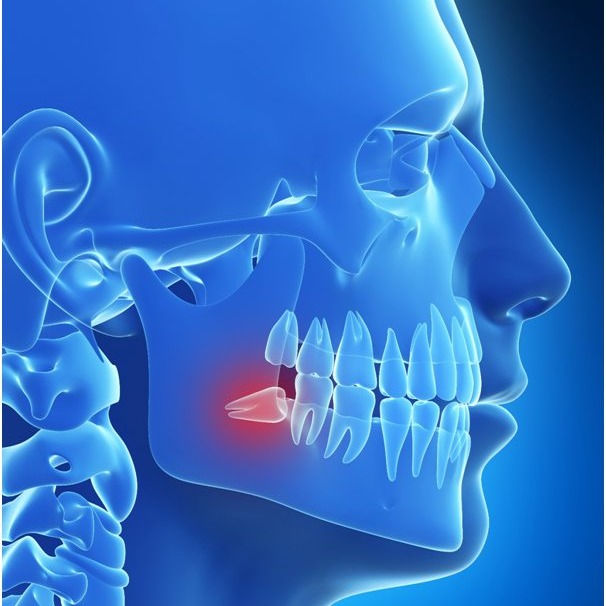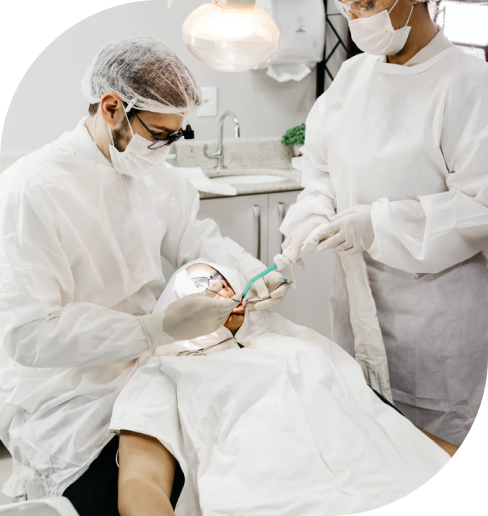Types Of Impacted Wisdom Teeth

Mesial (Mesioangular) Impaction
The tooth tilts forward, pointing towards the front of your mouth. This is the most common type. The angle makes it hard to clean and may lead to crowding.
Distal (Distoangular) Impaction
Your wisdom tooth points towards the back of your mouth. This type is less common and can press against the jaw or soft tissue at the rear.
Vertical Impaction
Your wisdom tooth tries to come up straight but cannot fully enter your mouth. It often gets stuck under the gum or hits the tooth next to it.
Horizontal Impaction
The wisdom tooth lies sideways under your gums, pressing directly into the nearby molar. This can cause pain or damage to the other tooth.
Buccoangular Impaction
Your wisdom tooth tilts towards your cheek. This angle can make it tricky to clean and might rub against your cheek.
Linguoangular Impaction
Your wisdom tooth tilts towards your tongue. This less common angle can sometimes make it harder to clean or irritate your tongue.
Inverted Impaction
In this unusual type of impaction, the wisdom tooth is turned upside down, with the crown pointing downward and the roots pointing upward. It is usually completely buried in the jawbone and can be difficult to remove due to its unusual orientation.

Soft Tissue Impaction
Your tooth has only partly broken through the gum. The crown is visible, but a flap of gum still covers part of it, making it hard to keep clean.
Bony Impaction (Hard Tissue Impaction)
Partial Bony Impaction
The wisdom tooth is partially embedded in the jawbone and has only partially broken through the gum. Some of the tooth may be visible, but it is still largely stuck and may require surgery to extract.
Complete Bony Impaction
The entire tooth is completely embedded in the jawbone and has not broken through the gum at all. This type usually necessitates more complex surgical removal.
.png?width=2223&height=447&name=Background%20(4).png)

.svg)
.svg)
.svg)
.svg)













.png)

.png)









